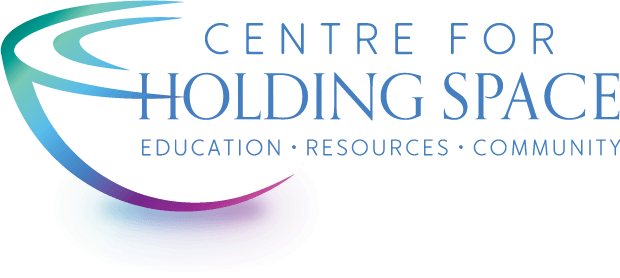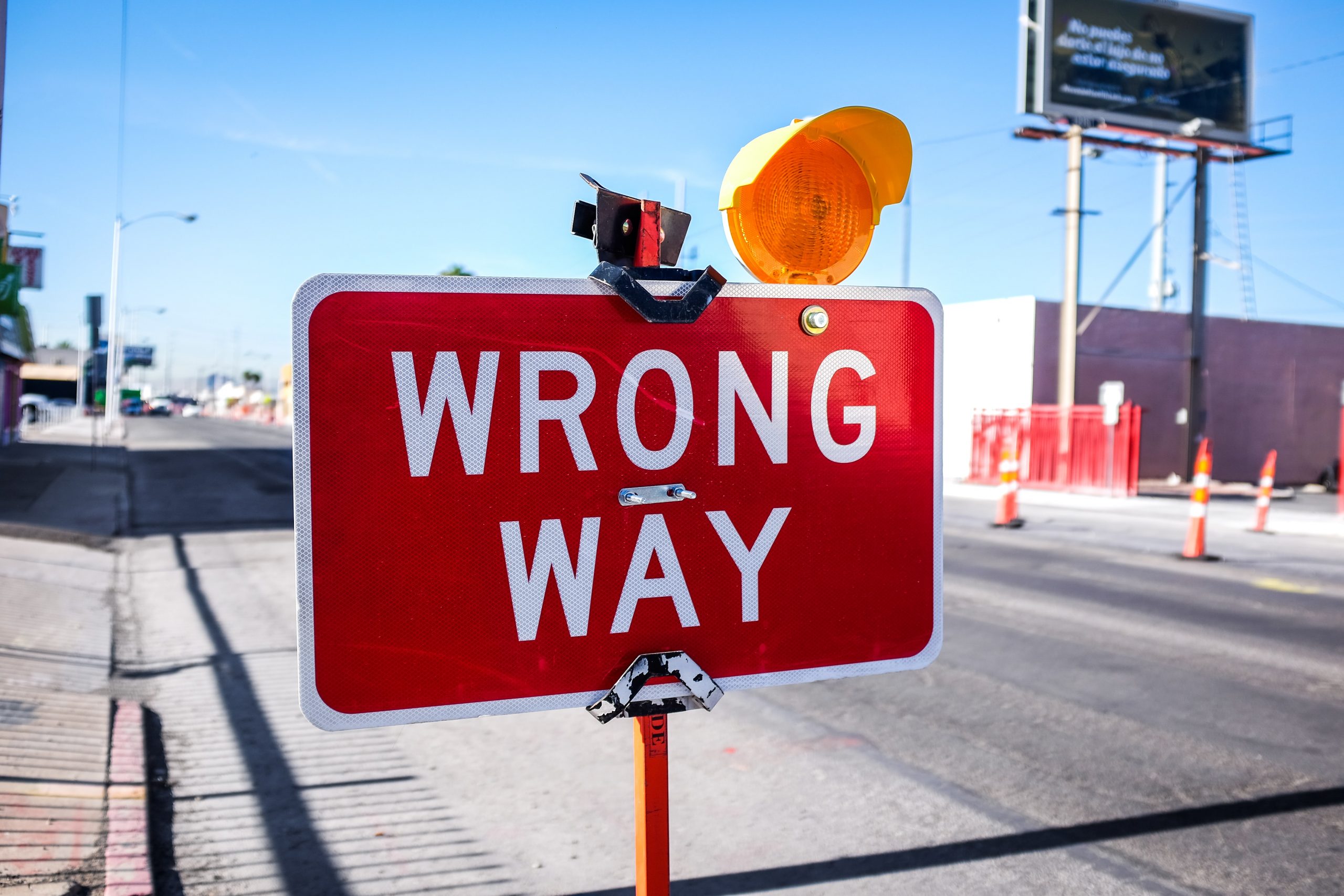Listen to Krista read the post…
You might be surprised to hear this, but one of the things Heather and I are in almost constant communication about is whether we could be wrong. Are we wrong about how we have approached something? Were we wrong in the way we responded to something? Did we hear each other wrong? Where are our blind spots? What are our biases – both conscious and unconscious? What or who are we forgetting?
On our website, we state that we are committed to holding transformative, brave, equitable, diverse, wise and welcoming space. All of those require that Heather and I are prepared to be wrong and to bear the consequences of being wrong. There have been a number of times when we have looked at each other during one of those moments when we have been challenged to dig into our values or face our biases and had to remind ourselves that this is both what we wanted and what we invited when we made those commitments.
If you follow current events, you probably don’t have to guess why I would write a post about the art of being wrong. Many in the United States are currently grappling with serious questions around how to come to grips with the fact that they may, in fact, have been wrong about some major, important issues.
Don’t misunderstand – this post is not a humble brag about how Heather and I are so good at being wrong that we’re never fazed by the discomfort of it. It’s more of a “Hey, we’ve had a lot of practice at this. Here are some of our observations.”
So, in that vein, here are some thoughts about what it’s like to confront being wrong and how to hold space for someone who has come to a place where they have to admit to being wrong:
- Finding out that you are wrong hurts. This is probably the most important thing to get out there, right off the hop. Finding out that you were wrong about something can range in its pain from slightly uncomfortable to down-right panic inducing. Pain in the body is a signal that something isn’t right. Cognitive pain (or cognitive dissonance) that occurs when faced with disproving evidence about something you believe is also a signal that something isn’t right. What you do with that pain is the thing that counts, of course.
- Being wrong hurts because it can threaten your sense of safety and belonging. In Heather’s book, The Art of Holding Space, and in our Holding Space Foundation Program, we talk a lot about how our needs for safety and belonging really drive a lot of what we do, think and believe. Those two primary needs are so intense that, when faced with disproving evidence that what we think or believe is wrong and the result of admitting that we are wrong will threaten our safety or our belonging to a particular group, it will be almost impossible NOT to dig into self-justification and confirmation bias. This is a massive hurdle. And if you are not well-resourced enough to have (or know that you will be able to find) another person or group of people who will love and accept you, it will be a Herculean task to try to confront that wrongness. Further, if you are embroiled in a trauma bond of some kind (whether with an abusive partner or even a cult), facing evidence of your or your partner’s/group’s mistakes can be so disruptive as to be a trauma in itself. Do not underestimate how hard this might be for yourself or for those you hold space for. Be gentle and kind.
- Pain is incredibly nuanced – be discerning. Based on my point above, you can probably guess that how we each experience cognitive pain varies depending on our own, personal life story. If you have experienced trauma in your life (i.e. abuse, poverty, war, etc.), your cognitive pain receptors are going to function differently than someone who has not experienced trauma. You may be hyper-sensitive to pain or, perhaps on the other end of the scale, dissociate in order to avoid feeling it. Your ability to cope with the pain of being proved wrong about something will be impacted by your trauma or lack thereof. All of this to reiterate: BE GENTLE with yourself and others who are experiencing cognitive pain due to being proven wrong. Dealing with any kind of pain, be it physical or cognitive, is not a competition. Everyone handles it differently, and, if you’re a leader of a group, you need to be aware and accept that your group will only move through that pain at the speed of the slowest person. The less the people in your group are shamed for the pain (or the mistake that caused it), the more capacity they’ll have for moving through it. Be patient and kind.
- Not all cognitive pain means that you are wrong. Cognitive discomfort or pain is a signal and a starting point. It’s a cue that you need to do a little digging to find out whether or not you might be wrong. Just like the pain of getting a good, deep tissue massage is different from the pain of spraining an ankle, it is important, when faced with the pain caused by disproving evidence about something you think or believe, to do your due diligence and investigate that evidence. This is where critical thinking plays a role and where things can become the most muddled. In an age where so much information is at our fingertips, it can be tempting to simply scroll through our social media to find out what our friends or favourite influencers are saying about a particular topic and assume we’ve done our research. Unfortunately, critical thinking demands more of us than that, especially when an issue hits at some of our core beliefs or threatens our sense of safety and belonging. Take your time. Give people time. This, right here, is the liminal space we talk about so often in holding space – it’s that awkward, uncomfortable in-between when things are changing. Don’t rush through it. Give yourself, and others, space both to do their homework and to sit with the discomfort of not yet knowing what the right answer is.
 Being wrong does not automatically make you a bad person. I think one of the other hurdles we face when trying to own up to our mistakes is that we all want to believe that we’re not bad people and we worry that if we make a mistake, that we will no longer be ‘good’ anymore. I get hung up on this all the time. And yet, being able to be vulnerable and admit my mistakes has done more to help my relationships than it has to hinder them.
Being wrong does not automatically make you a bad person. I think one of the other hurdles we face when trying to own up to our mistakes is that we all want to believe that we’re not bad people and we worry that if we make a mistake, that we will no longer be ‘good’ anymore. I get hung up on this all the time. And yet, being able to be vulnerable and admit my mistakes has done more to help my relationships than it has to hinder them.- The choices you make when first faced with being wrong will impact the consequences. In Carol Tavris and Elliot Aronson’s book, Mistakes Were Made (But Not by Me), the authors go into quite a bit of depth describing how cognitive dissonance, confirmation bias and self-justification happens, even to the best of us. They argue that, when faced with disproving evidence about something we think or believe, we are faced with a choice to either investigate the evidence, own up to and learn from our mistakes, or to self-justify our former belief and only accept evidence that we are right in that choice/thought/belief. The longer you choose to self-justify and dig into confirmation bias (only allowing yourself to hear/see things that confirm what you already believe), the harder it becomes to admit you were wrong in the first place. The longer it takes for you to confront your mistake, the more potential there is for damage. Just like an athlete may suffer permanent physical damage if they ‘push through the pain’ and keep competing on an injured limb, there is real, life-impacting damage that can be done if we choose to ‘push through the cognitive pain’ and persist in believing in something that has been proven demonstrably false. If you need a real-world example, read this story from a nurse in South Dakota who had patients insist COVID-19 was a hoax, even as they were dying from it.
- You are responsible for the consequences of being wrong. I don’t want to write this one. Truly. I don’t. I wish there was a way to be wrong and then not have to deal with any of the fallout – in my own self, or in my relationships, or in the world. But that’s simply not the case. There are real consequences when you find out that you have been wrong. Sometimes it’s just an internal thing – like wrestling with how dumb you feel that you watched two seasons of the Mandalorian and believed it all to be happening in the Star Wars timeline decades after it actually did. Sometimes, however, the consequences are bigger and harder to face – like coming to grips with the fact that you hold way more racist beliefs and biases than you ever believed you were capable of. Or, that you believed a virus was a hoax, and now you are dying of it. Or, that you believed your church was on the side of God, even though they held beliefs or engaged in actions that led to LGBTQ+ folks being ostracized and disowned by their families, resulting in homelessness and, often, suicide. Or, that you believed your president was being conspired against and should have won the election and that he encouraged you to do the right thing and prevent the fraudulent vote from being ratified in Congress by storming its gates. Being wrong has consequences, and to pretend that you are exempt from experiencing those consequences is also wrong, even (and maybe especially) if people who look/act/believe like you have not historically experienced many consequences for being wrong. I believe that is changing and, as someone who belongs to one of those groups, it is terribly uncomfortable – worse than uncomfortable sometimes. But it is very, very necessary. If you are holding space for someone who is facing potential consequences of being wrong, it is important not to attempt to mitigate those consequences. You do people a disservice if you downplay or help them avoid the natural consequences of their actions.
- WE are responsible for the consequences of each other being wrong. Look, personal responsibility is incredibly important, but there is a growing awareness that a lot of the things that are wrong with our societies are systemic. There are things that are seriously wrong with our systems of politics, policing, economics, education, health care – the list could really go on and on, couldn’t it? If we don’t deal with the consequences of each other’s mistakes, even those made in the past that we weren’t directly involved with but that we may still benefit from, things cannot really change. I believe it will take both individual AND collective acceptance of the responsibility of the consequences of being wrong to cause a significant shift in our systems and in the ways we relate to each other in them.
- The amount of time / energy you have invested in being wrong does not mean you are doomed to continue being wrong. I know this maybe sounds weird, but there’s a thing about humans (and this is discussed in Tavris and Aronson’s book) where we have difficulty detaching from things in which we are heavily invested. The comedian, Dane Cook, had a joke in which he mocks how some girls stay with bad boyfriends for the weirdest reasons: “You don’t understand. I can’t break up with him. My CDs are in his car.” (Sorry to those of you who are too young to find that funny!) It takes a good bit of work to unravel some of the twisted reasoning we have done in order to deny being wrong, but it is possible to do. This is a spot where holding space is an especially useful tool – having someone sit with you and not reject you through all those weird reasons why you can’t change your mind or behaviour can be so helpful in letting them go. Doing this for someone (or having someone do that for you) helps mitigate the roadblocks of those primal fears of losing our safety and belonging.
Finally, for the TLDR, let me sum up what I hope you take away from all of this:
- Finding out that you might be wrong sucks. A lot.
- Being wrong does not automatically make you a bad person. It makes you human, like the rest of us.
- You (individually) and we (collectively) are responsible for the consequences of our (and each other’s) errors.
- There is always opportunity to make new choices. Unfortunately, we may still make wrong choices.
- See #1. Rinse & repeat.
I recognise that there’s a lot of nuance I may have missed, including a more in-depth examination of the interplay between experiencing consequences and grace and restoration. Heather did a great job of some of that on her blog in this post: The humanity behind the harm: Extending grace to ourselves and others.
Adopting a posture of being willing to be wrong is no cake walk, to be sure. But Heather and I have both found it to be immensely worth it.

